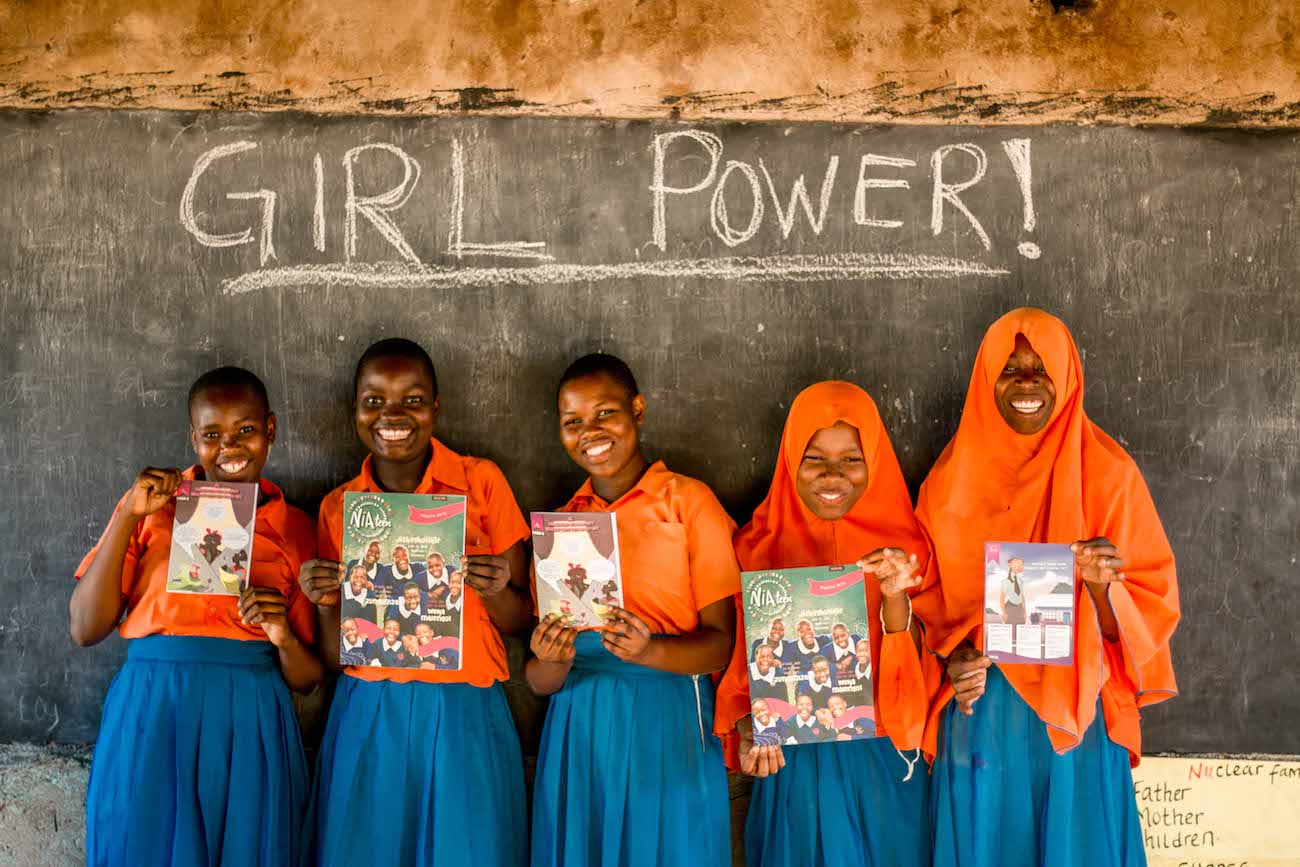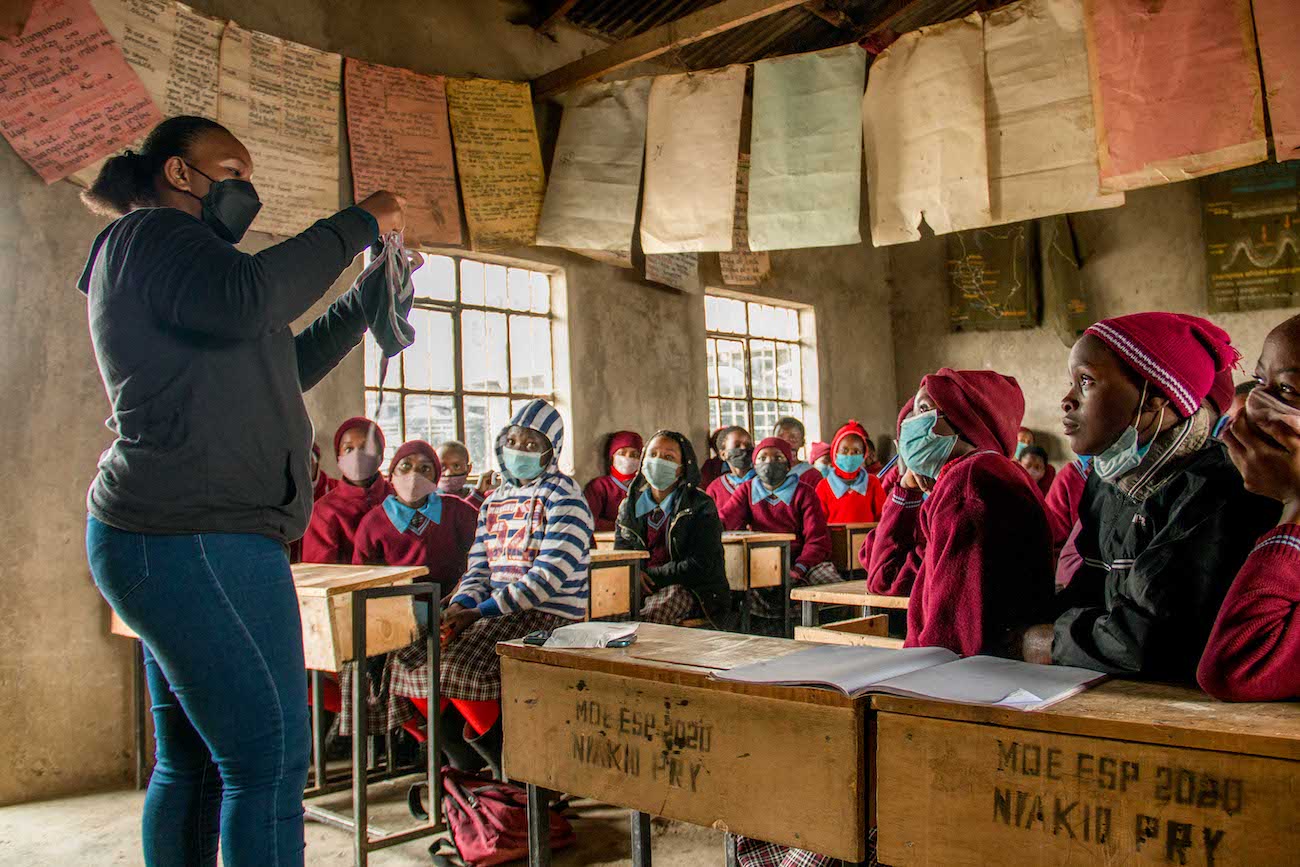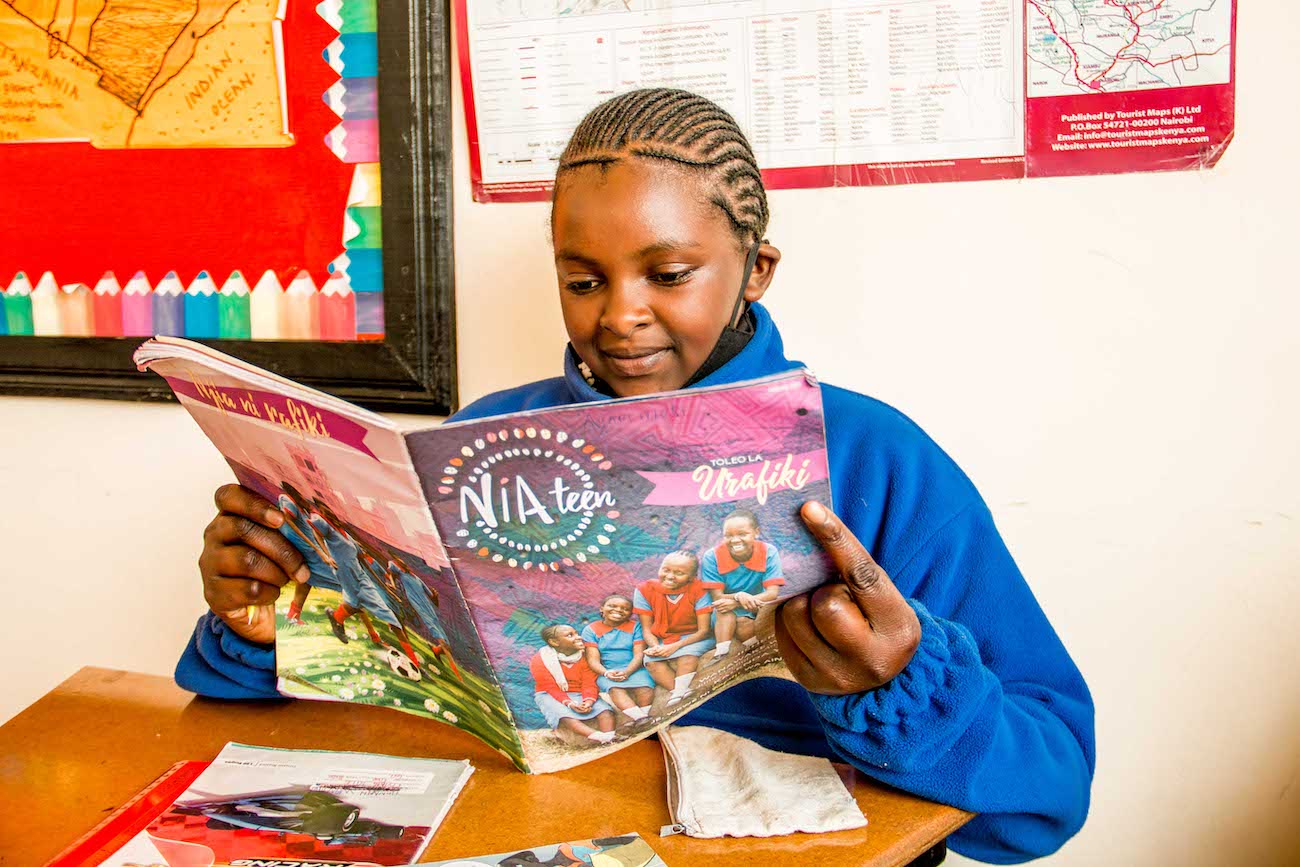Life skills lessons help girls understand their changing bodies and their rights

To mark International Women’s Day tomorrow, we look at a Theirworld-supported programme in Kenya that will train teachers to advise girls on “taboo” subjects such as puberty and reproductive health.
When 15-year-old Getrude learned about gender stereotypes at her school in Kenya, she decided to become a teacher at home.
Her mother didn’t believe Getrude should play football with boys or that her brother should wash dishes because it was a “girls’ chore”.
Getrude said: “I sat my mum down to teach her. She read the lessons and changed her views. I want the whole world to know that girl empowerment is very good because girls can do what boys can do. Human rights are for everyone.”
Getrude’s lessons in reproductive health and life skills were delivered by ZanaAfrica, a Nairobi-based organisation that helps girls to manage the challenges of adolescence. Its curriculum improves girls’ self-belief, confidence and problem-solving, as well as teaching boys about respect and understanding.

Students get a health lesson as part of their ZanaAfrica studies (Picture: ZanaAfrica)
ZanaAfrica says the work is crucial because two in three Kenyan girls lack access to health education and sanitary pads, and 20% of teenage girls aged 15 to 17 are pregnant or have had children.
With Theirworld’s support, the foundation will pilot a teacher-training method with 50 teachers. This pilot will be a critical step towards the longer-term goal of Zana to expand the training to 1,000 teachers next year – ultimately reaching about 200,000 girls across rural and urban Kenya.
ZanaAfrica will also distribute sanitary kits – which include pads and underpants paired with educational comics on health and rights – to 10,000 girls to help them manage their periods with dignity.
Getrude said: “When we empower a girl with a [sanitary] pad, she can come to school, study well, pass her exams and change her life and her family’s life.”
“This intervention is incredible. I have seen girls transformed. They know they have the right to an education, the right to dream and to pursue their dreams.”
Elizabeth Sidi, Programme Operations Coordinator for ZanaAfrica.
Before the teacher-training pilot, ZanaAfrica was training mentors to deliver its Nia programme in schools – Nia means “purpose” in the Kiswahili language. One of them is mother-of-three Alice Kombo, who has an adolescent daughter herself.
She said: “I grabbed the opportunity to be a mentor because I grew up in the same community I’m working in.
“Girls and boys said they were able to overcome challenges like dropping out of school, early pregnancies and child labour because they had the information. They knew what their goals were and they wanted to achieve them.
“Most of the girls were able to go to secondary school. For those who got pregnant, they were also able to come back to school and continue the journey of learning.”

A student reads a Nia Teen magazine as part of her ZanaAfrica classes (Picture: ZanaAfrica)
Elizabeth Sidi is ZanaAfrica’s Programme Operations Coordinator in Kilifi, a community on the coast, southeast of the capital Nairobi. She said many girls do not have access to sanitary pads and topics such as puberty and reproductive health are considered taboo.
“Most parents do not talk to their children about them,” she said. “As a result, cases of pregnancies have risen shockingly high.
“The girls need information about their changing bodies and about human rights. These are topics that are not normally discussed in the classroom or at home.
“Girls can learn to understand what is happening to their bodies. They can name and understand what they are feeling. They learn how to use their voice. They learn that they have a choice and that they are valuable.
“I love my job because I see the impact it has on our girls and also on our boys. They have become more supportive and more understanding of the girls. They know they are equal and they treat them with respect.”
Alison Nakamura Netter, Executive Director of the ZanaAfrica Foundation, said: “Thanks to Theirworld’s generosity, we will widen our circle of impact, helping more girls to safely and confidently navigate puberty and step into the promise of their futures.”
Theirworld’s support is thanks to the players of People’s Postcode Lottery.